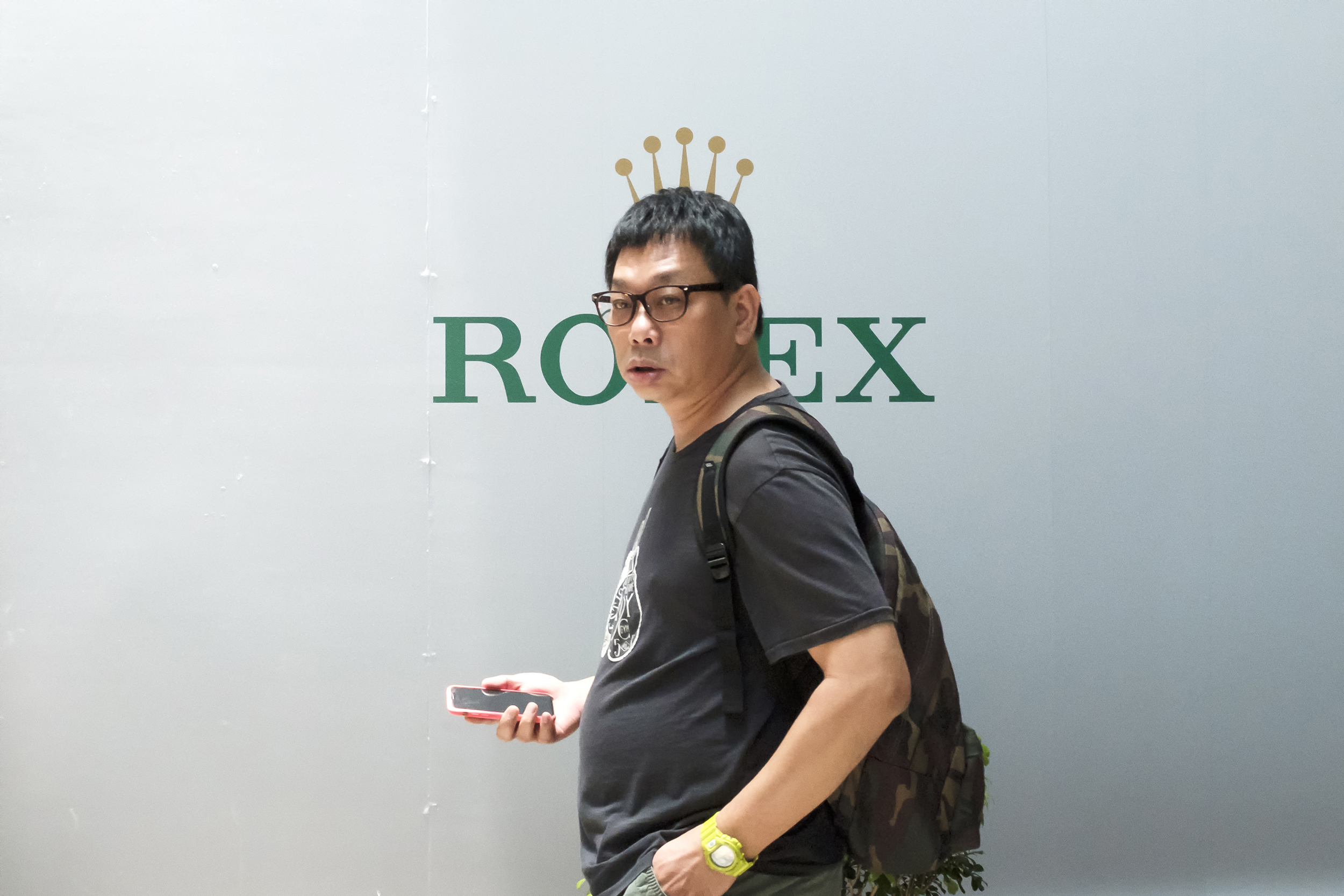Last Updated on 02/19/2019 by Mark Beckenbach
All images by Edas Wong. Used with permission.
Edas Wong is arguably one of the best street photographers working today. Shot after shot that he produces is always of the highest quality. Based in Hong Kong, Edas has a superhuman eye for the humorous juxtaposition. Simply put, he sees things that others just don’t see. His work has allowed him to rise in popularity over the past couple of years. So much so he is now about to release his first photo book – something we are very excited about.
Ahead of his book release, we spoke to Edas about his life as one of the strongest players in the street photography scene.
Phoblographer: Your work is so much fun to look at. Full of quirky juxtapositions and coincidences. Where did your ultra strong eye for these type of scenes come from?
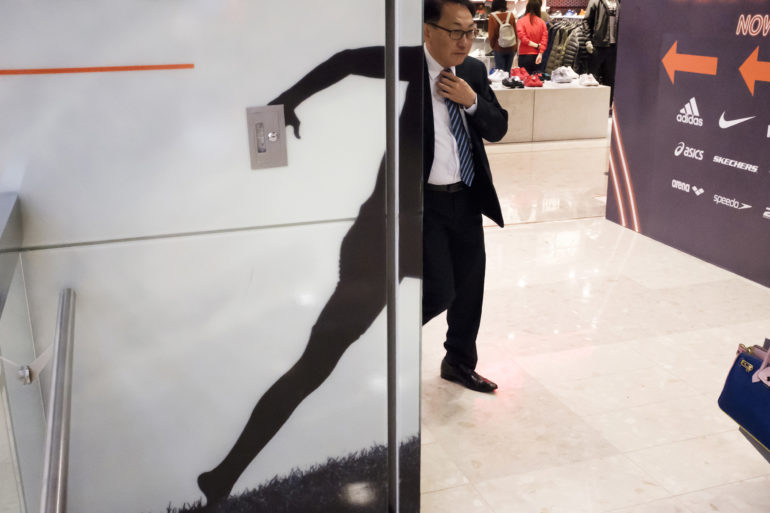
EW: Since I was a kid, I was daydreaming for a hobby. I always imagined myself connecting different elements, e.g. Mixing subjects A + B to become C. This hobby makes me like to find juxtapositions and coincidences in daily life. Regarding how I’ve developed my ultra-strong eye, it is about FLOW…
In psychology, FLOW is the mental state of operation in which a person performing an activity is fully immersed in a feeling of energized focus, full involvement, and enjoyment in the process of the activity. On the street, I highly concentrate on all elements around me and keep imagining their connections.
In Zen habits, let things FLOW naturally. On the street, I try to space out my mind, i.e. let things in then let things out, don’t keep looping in mind. When the mind is empty, imagination becomes infinite.
Reviewing photos lets me understand myself.
Phoblographer: Because of the amazing work you do, you have put yourself at such a high standard. How many hours a week are you shooting to maintain that and how do you keep yourself focused?
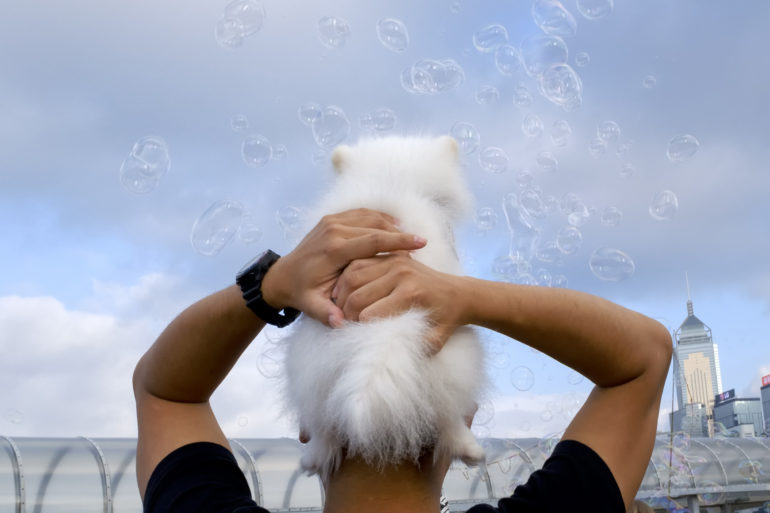
EW: I shoot mostly at weekends, spending the whole day shooting e.g. from 10:00 to 19:00. Of course, it is absolutely normal to have difficulty focusing for such long periods. Once I feel tired or that I’m losing concentration, I will then take a coffee/tea/ice-cream break to space out my mind. If I’m really tired, I don’t shoot.
Phoblographer: Sex In The City is a cool, lighthearted project. Where did the idea come from and how long did it take to bring it to life?
EW: I normally shoot without any intention. This means I do not force myself to shoot for a particular topic. If only certain topics are targeted, it will limit my imagination and make it difficult to get good photos. However, I like to group/review my work. Reviewing photos lets me understand myself. I can see my ambition/problem/weakness/etc. during review. The photos in “Sex In The City” series were collected when I reviewed my work. Haha, it implies that my mind was a bit dirty during that period.
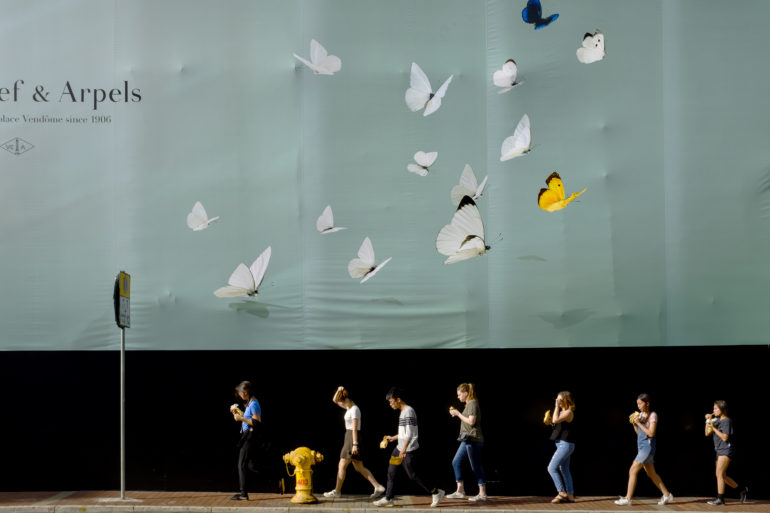
Phoblographer: Your portfolio starts in 2015. How do you feel your work and approach to street photography has evolved in those four years?
EW: At the beginning, I kept looking for connections, i.e. juxtapositions. Recently, not only do I search for connection but I also try to “create” connections. Even though two different elements obviously have no relationship, mixing them becomes a strange connection.
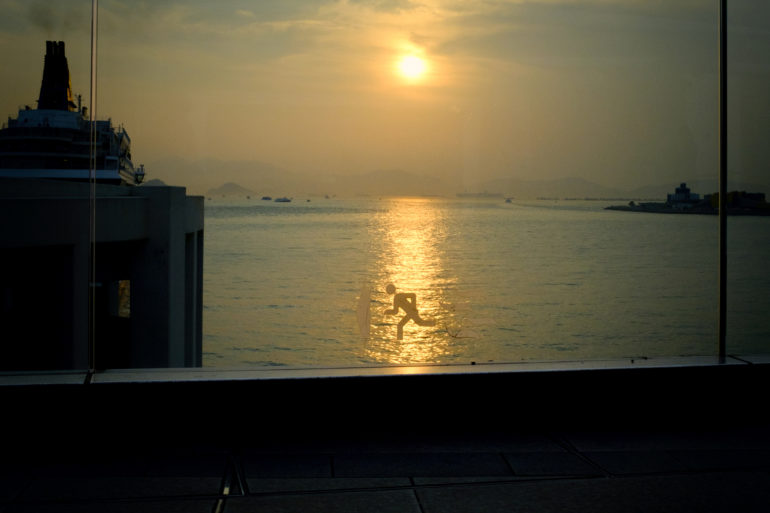
Phoblographer: In your opinion, how do you measure a person’s success in street photography?
EW: A successful street photographer should have a heart to always experiment with something new. They should not keep looping old concepts. Yes, I know it is difficult!
Phoblographer: Out of all the images you have taken, which is your personal favourite?
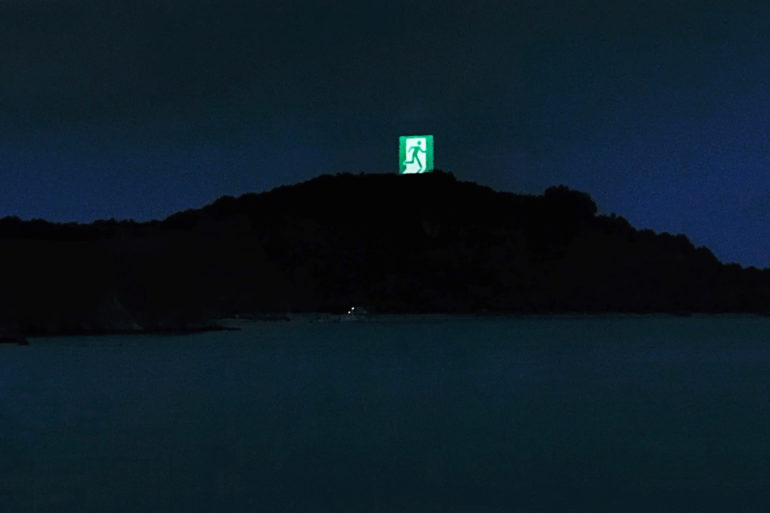
EW: Escape! The image quality is no good because I shot it at a very low light situation with my iPhone. However, the concept is excellent. The “Escape” sign and dark mountain had completely no relationship. However, once they were overlapped due to reflection, it became Doraemon’s Anywhere Door. It completely represented my feeling at that moment: escape and go home!
Phoblographer: Am I right in saying your wife is also a street photographer? Is there any personal rivalry between you both in terms of who can get the better shots?
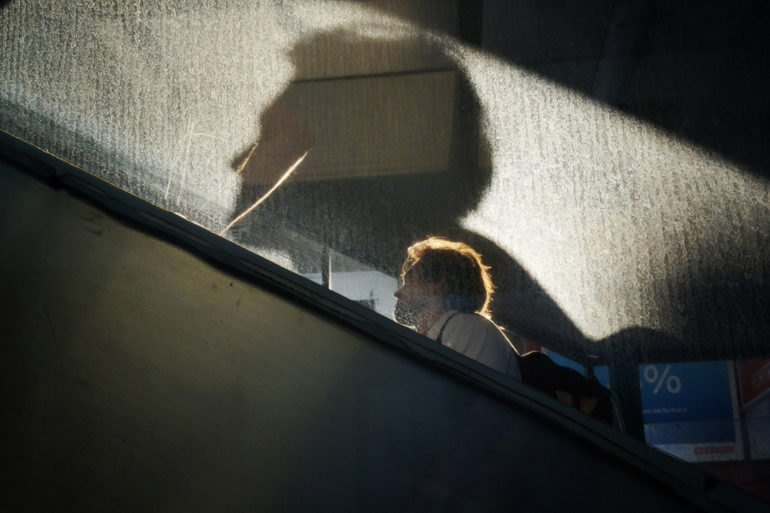
EW: My wife isn’t a street photographer really, however, she loves shooting too. Normally, she is the first person to see my work. Sometimes, she likes photos which I thought were mediocre, but in the end, they become popular, e.g. Man In A Hurry.
Readers will follow me to observe the street through the eye of a child…
Phoblographer: Some street photographers who are the masters of juxtapositions are sometimes asked if their photos are staged. Have you ever experienced this and what do you say to those who question the authenticity of a person’s work?
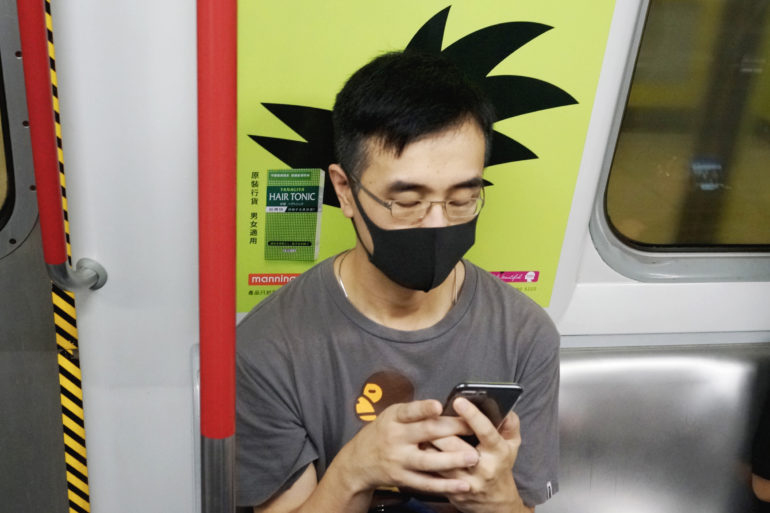
EW: Seldom! Actually, no matter what I say, it is still difficult to convince them if they have such a solid mind. At the very beginning, I deleted these photos which were not popular (less “likes”) and that people thought were staged. However, over the past two years, I’ve intentionally included more peoples faces [to show they are not staged].
Phoblographer: You’re publishing your first photo book. How exciting! Why is now the right time for you to do this and what can fans of your work expect from the book?
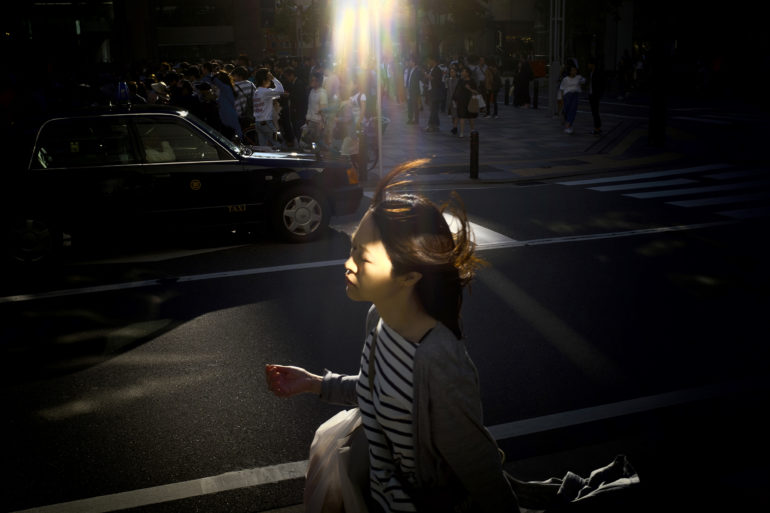
EW: I have accumulated many photos in the past six years. It’s the right time to summarize what I took and to think about the next step. The theme of my photo book is “Re-Form”. These photographs are different from street photographs taken casually or those that pay much attention to the composition of images. I intended to discard all known understandings and restrictive assumptions and use the way of child’s thinking to re-comprehend the world in front of me. Then I reformed all the elements with unlimited imagination and formed all the interesting photos. In glancing through the photobook, readers will follow me to observe the street through the eye of a child. It should be fun!
The concentration FLOW also makes me happy
Phoblographer: What does street photography mean to you? How important is it to your happiness?
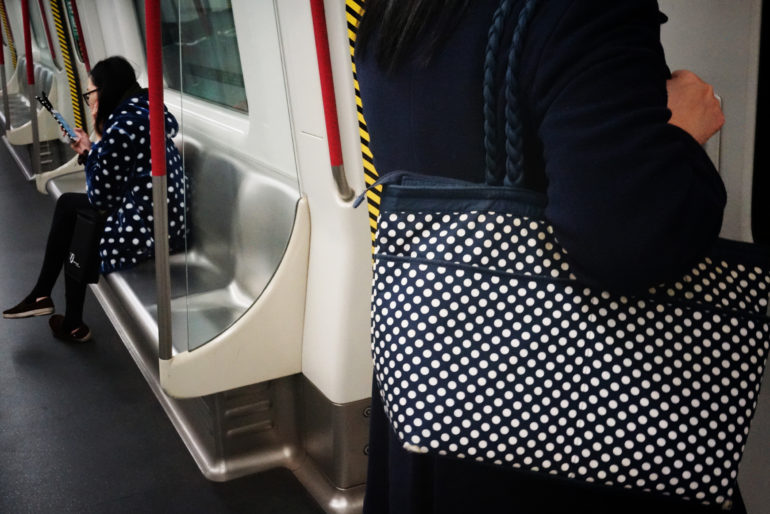
EW: Street photography is a media for me to express my daily crotchets. The happiness of street photography is from the process, not results. I like to shoot alone because I enjoy the loneliness. Furthermore, the concentration FLOW also makes me happy.
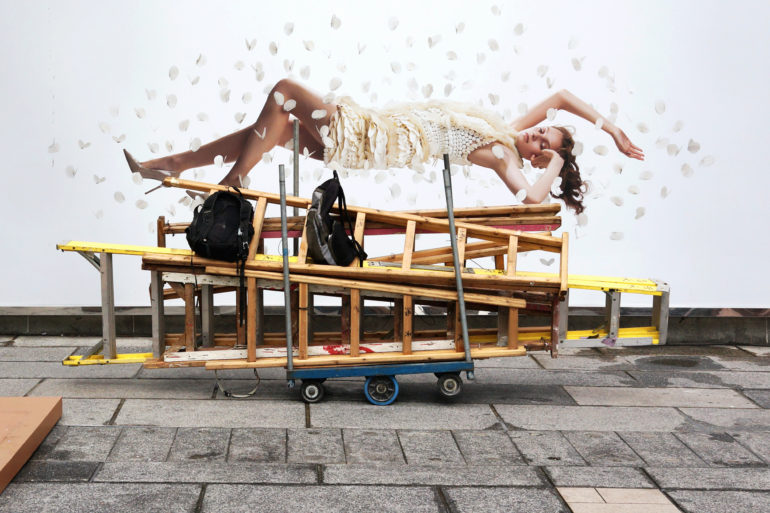
Thanks, Edas!
To keep up with Edas and to pre-order his book be sure to visit his website.


